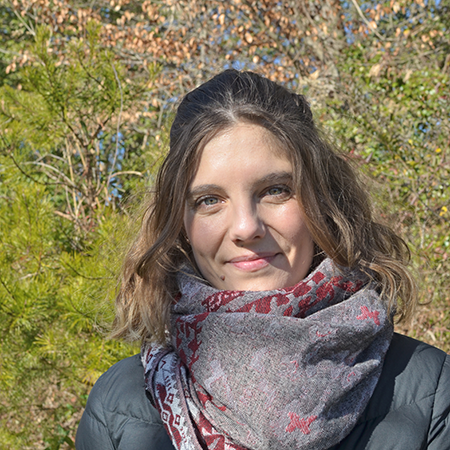Dr. Ophélie Couriot is a wildlife ecologist, and her research focuses on the response of wildlife to global change. In particular, she is interested in the behavioral response of animals to human- and climate-induced changes in their environment, and she investigates mechanisms across several scales: from the individual to the population. At SESYNC, she is studying the effects of climate change and human development in the North American Arctic on a keystone species, the barren-ground caribou. She is particularly interested in the factors influencing spatiotemporal variation in reproduction, one of the most important life history traits driving population dynamics in the species. For this project, she is mentored by Dr. Eliezer Gurarie and Dr. William Fagan from the University of Maryland. Before joining SESYNC, Ophélie completed her PhD at the University of Toulouse (France) under the direction of Dr. Mark Hewison, Dr. Nicolas Morellet (National Research Institute for Agriculture, Food and the Environment, France [INRAe] and Wildlife Ecology and Behavior [CEFS] laboratory), and Dr. Sonia Saïd (The National Office of Hunting and Wildlife [ONCFS]). During her PhD, she studied the impacts of spatiotemporal variation in resource and risk distribution on movement and activity patterns of two abundant, large lowland herbivore species in Europe, roe and red deer. In particular, her aim was to understand the link between their spatial behaviour and their access to forage resources and risk exposure in a changing environment, as well as the consequences on individual performance.
External Links:
https://www.linkedin.com/in/oph%C3%A9lie-couriot-898b42183
https://sites.google.com/view/opheliecouriot/research
